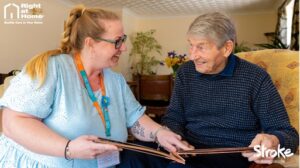
When a medical team decides that cancer treatment is no longer effective, the focus turns to comfort and quality of life. But this does not mean that care ends — only that it changes. Support shifts toward helping your loved one feel as comfortable as possible while also guiding and supporting your family through the months ahead.
You don’t always have to leave home to access this support. End-of-life care can be provided in familiar surroundings, with the help of professional Care Givers trained to offer compassionate assistance at home. If you’re looking to arrange private care for elderly at home yourself, here is what you need to know when searching for services in Central London.
What end-of-life cancer care involves
End-of-life care focuses on comfort. Homecare should stay flexible and responsive, offering the right level of help for as long as it is needed.
A professional carer can offer consistent, tailored support — ranging from companionship and personal care to medication reminders and mobility assistance. Depending on your care plan, they can visit several times a week or provide live-in care. If needed, respite care is also available to give family members time to rest and recharge.
Why experience counts
Look for carers with a solid track record in supporting families during end-of-life cancer care. Experienced professionals can ease the burden by helping with everyday tasks that may become difficult to manage, such as:
- preparing meals
- light housekeeping
- laundry
Having help with these tasks allows families to focus more on being present with their loved one and less on daily routines, which is especially important during a highly emotional time.
Ask your loved one’s GP for guidance
Start by asking the GP, hospice team, or community nurse for recommendations on private care for an elderly person at home. Reputable homecare providers are often closely connected with these healthcare professionals and can help coordinate additional emotional and practical support.
By finding the right team, you can help your loved one remain comfortable and cared for — at home, surrounded by familiarity and dignity.
What end-of-life services include
End-of-life cancer care is an essential part of a broader palliative homecare plan. Its purpose is to help your loved one remain as comfortable as possible. Make sure that the private care you choose includes the following:
- Palliative care – Although people often use the terms interchangeably, palliative care and end-of-life care differ slightly. Palliative care can begin at any point after a terminal diagnosis and may continue for years. It focuses on managing pain and symptoms to improve comfort.
As your loved one reaches the final stage of illness, end-of-life care becomes more specific. It supports both physical needs (such as pain relief) and emotional well-being. A reliable homecare service will include palliative support as a key part of the care plan.
- Emotional support – Quality private care for the elderly at home focuses on building trust and providing emotional support for your loved one and the family. A complete care plan often includes guidance on bereavement and financial resources, ensuring that you are supported now and in the future.
- Everyday assistance – Care Givers make sure that your loved one is clean and well cared for. They provide help with meals and personal hygiene while maintaining a calm and comfortable environment. Light housekeeping and laundry may also be included to ease daily chores. The focus remains on preserving quality of life.
Support from Right at Home Central London
If you are searching for dependable end-of-life cancer care in Central London, contact Right at Home Central London at 020 3084 7333. Their Care Givers offer personalised homecare designed to keep your loved one as comfortable and supported as possible. You may also request a callback on their website to learn more about their private care solutions for elderly people at home.